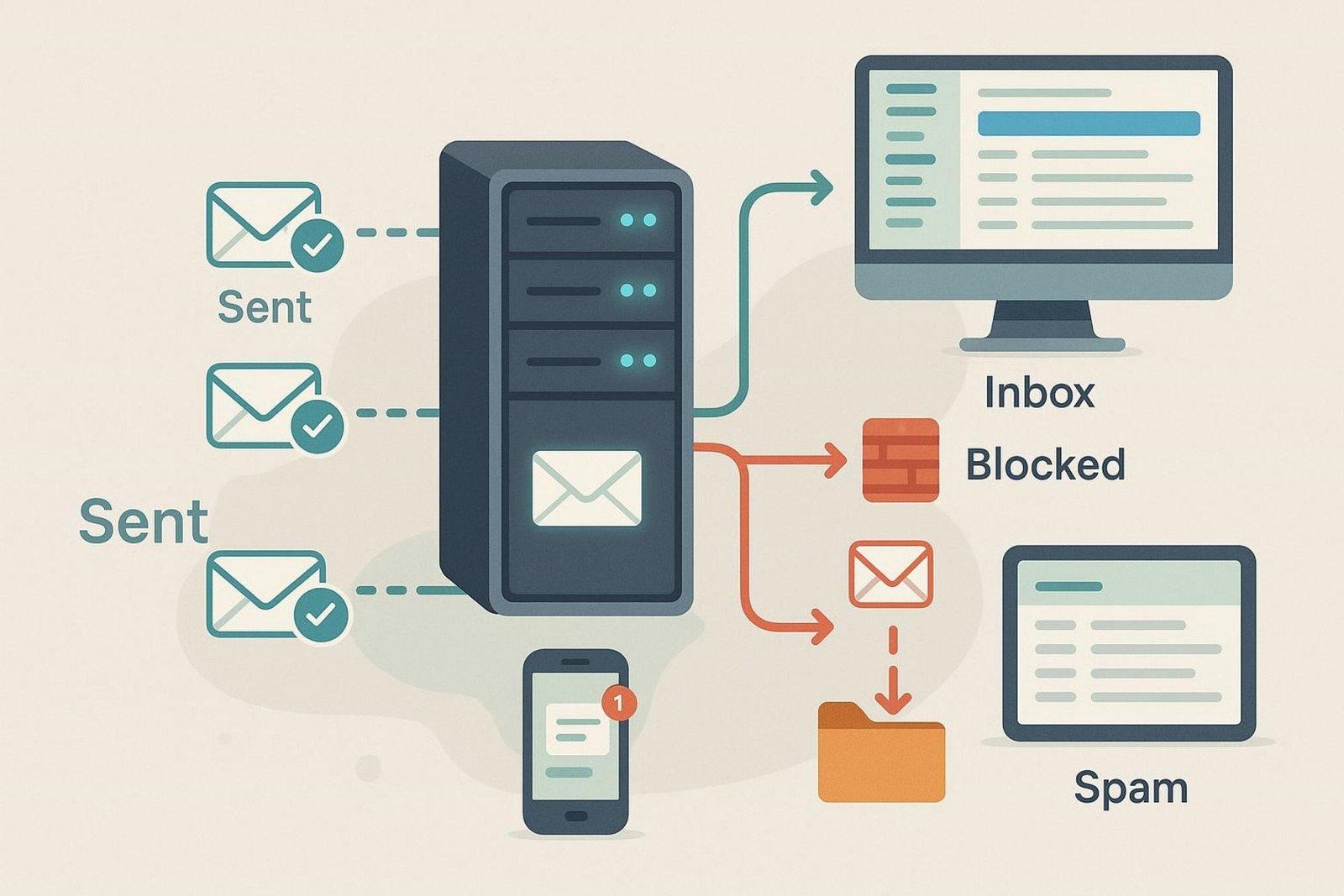How the Right Email Delivery Provider Can Boost Your Business Communication
Today’s digital business world moves quickly. Good communication is not optional-it’s necessary for success. Email lies at the center of this. Whether you’re sending important transactions, marketing messages, or internal updates, getting those emails delivered reliably and on time makes a real difference.
Choosing the right e-mail delivery provider helps ensure your messages reach customers, look professional, and build the trust and engagement needed to grow your business.
Picking a provider is about more than just being able to send emails. You need to find someone who helps make the process smooth, effective, and secure.
Why Reliable Email Delivery is Important for Your Business
Email is a basic, trusted way to communicate in business. Billions of emails are sent every day because email is both reliable and flexible. It’s direct, personal, and provides a great return for each dollar spent.
Both small companies and big organizations rely on this channel to communicate with customers, partners, and their own teams.
Email is always changing to keep up with new technology. Features like automation and analytics help businesses target the right people and measure their results. For many businesses, especially new ones, email is the main way to find and keep customers.
Effects of Poor Email Delivery on Business
If your emails don’t get to your audience, it can cause real problems. If a customer doesn’t receive a purchase confirmation, account notice, or a special offer, they can lose trust, become frustrated, or contact your support team more often, costing you money. Mails lost to spam filters or technical issues can mean missed sales and lost reputation.
Poor delivery doesn’t just affect customers. Inside your company, it can slow down projects, mess up team communications, and waste time. If important updates go to junk folders, staff might miss out on news, deadlines might slip, and overall productivity can drop. In short, if your business uses email, reliable delivery makes a big difference across the board.
What Does an Email Delivery Provider Do?
An email delivery provider helps businesses send emails dependably, whether you’re sending a few or thousands at a time. Think of them as a specialist who makes sure your “digital letters” get to the right place, using dedicated systems to handle large volumes and avoid issues like getting stuck in spam filters.
Whether your company is big or small, you need some form of email infrastructure. Providers take care of the technical side so you can focus on your message without worrying about how the emails are actually sent and delivered.
How the Email Infrastructure Works
Email delivery involves several connected parts:
- Servers to prepare and send the emails.
- DNS (Domain Name System) to match domain names with IPs.
- Proper management of IP addresses to maintain reputation.
Extra systems handle things like:
- Click tracking and safe links.
- Automatic bounce processing to remove bad addresses.
- Feedback from ISPs to avoid or fix problems.
Providers take care of these details so your business doesn’t have to.
Common Ways Businesses Use Email Delivery Providers
Email delivery services have many uses, from sending automatic updates to running large marketing campaigns.
| Use Case | Examples | Business Need |
| Transactional Emails | Receipts, order confirmations, password resets | Quick, reliable inbox delivery |
| Marketing Campaigns | Promotional emails, newsletters | High deliverability & tracking |
| System Notifications | App updates, status alerts, reminders | Consistent and timely delivery |
| Internal Emails | Team updates, policy changes | Secure and dependable messaging |
How the Right Provider Makes Your Email Better
Having a good email delivery provider is more than just an easy fix-they help make your communication clearer, faster, and more reliable.
- Improve deliverability: Get more emails to the inbox, not the spam folder.
- Send faster: Especially for time-sensitive alerts, confirmations, or reset links.
- Better marketing: Tools for targeting, personalizing, and measuring success.
- Scale easily: Providers are ready for big volumes and quick growth.
Types of Email Delivery Providers: Pros and Cons
When looking at email delivery providers, you’ll find three main types: cloud-based, on-premises, and hybrid.
| Provider Type | Pros | Cons |
| Cloud-Based | Easy setup, quick to scale, support included | Less control, possible impact from others’ sending behavior |
| On-Premises | Maximum control, strong data security | High setup/maintenance costs, needs IT staff |
| Hybrid | Mix of control and convenience, flexible | More complex management, still some on-prem costs |
- Cloud-Based Email Delivery
- On-Premises Infrastructure
- Hybrid Models
What Should You Look For When Picking an Email Delivery Provider?
This is an important decision. Don’t just look at the ability to send emails-think about these key points:
- Reliability & Uptime: Look for guaranteed uptime and quick response to outages.
- Security & Compliance: Make sure the provider uses strong protections and meets any legal rules (like GDPR or HIPAA) that apply to your sector or region.
- Easy Integration: The provider should offer clear documentation and tools to connect to your current systems without much hassle.
- Scalability: Make sure the service can grow with your business and handle more emails as you expand.
- Support: Good customer service is vital. Check how quickly they respond and if they offer specialized help.
- Pricing: Understand how they charge.
Questions to Ask a Potential Provider
- What’s your average deliverability rate?
- How do you handle abuse or spam issues?
- What security measures do you have in place?
- What’s your support structure and response time?
- Are there any hidden fees?
- Can you share customer stories from similar businesses?
The Future of Email Delivery in Business
Email is likely to stay a major tool for business communication. Its strengths are that everyone uses it, it’s dependable, and it works for both simple notices and detailed messages. But email will keep changing as new technology and expectations grow.
Trends for the future include:
- More personalization (using data to make each email more relevant)
- Stronger privacy and security features
- Email merging with other business tools for coordinated communication
AI and automation will also help businesses plan and send smarter emails, target users better, and reduce manual work.








